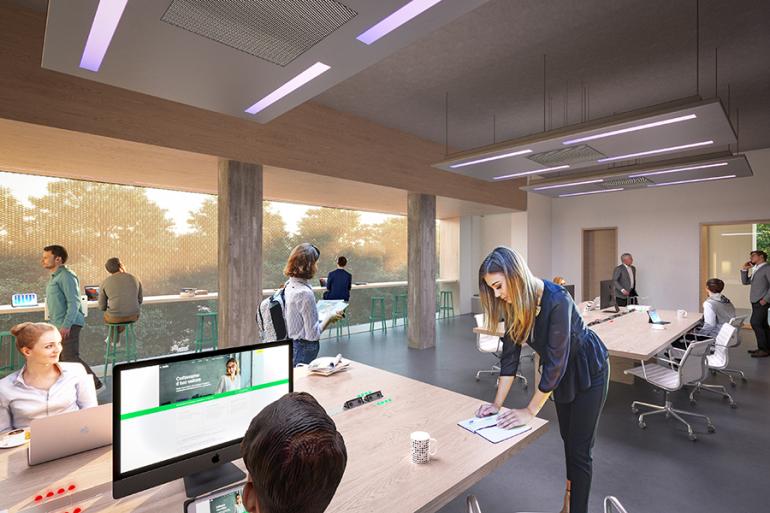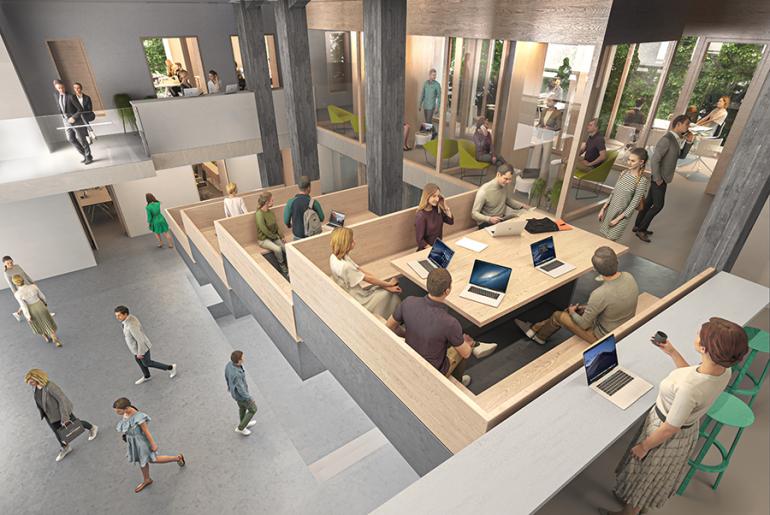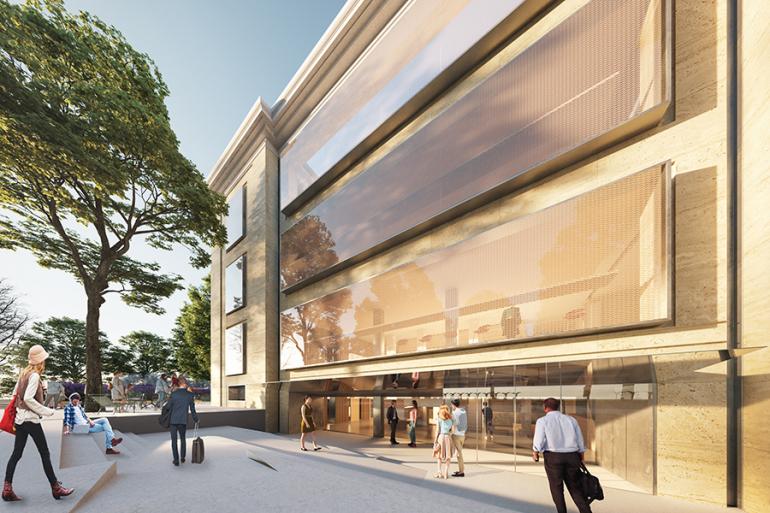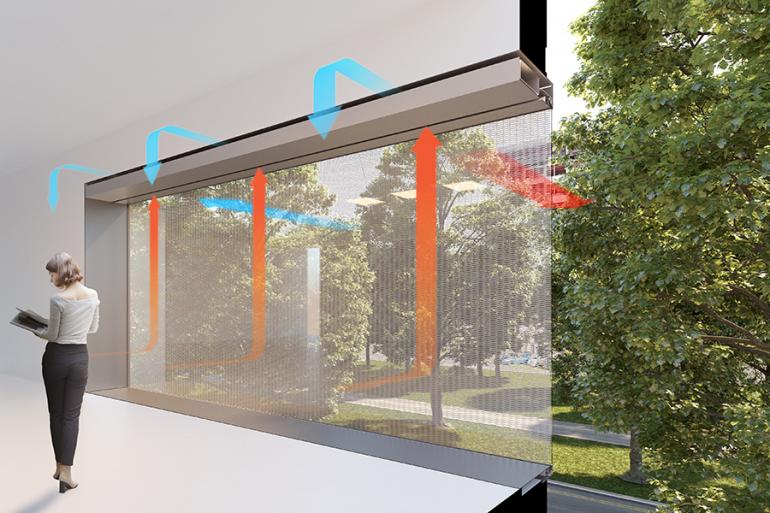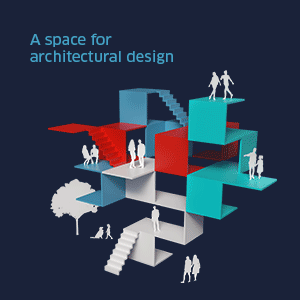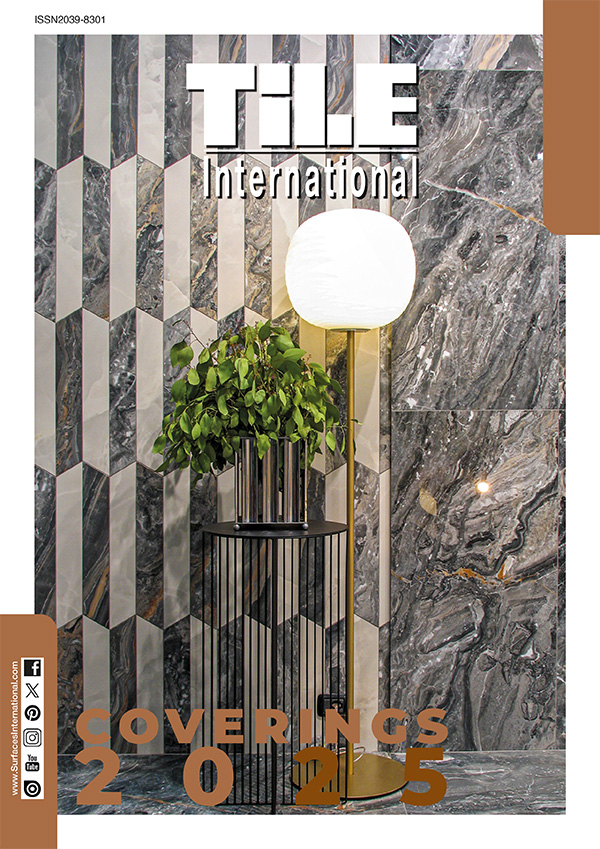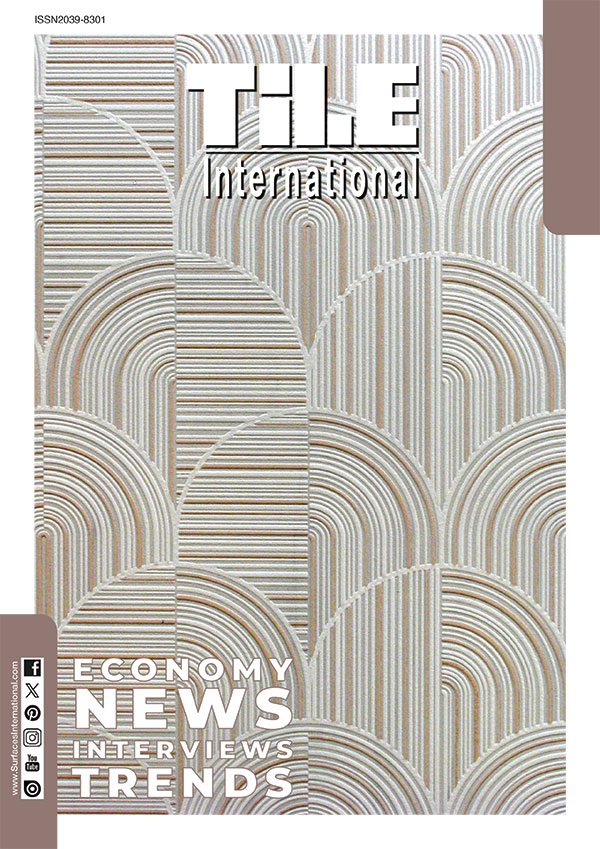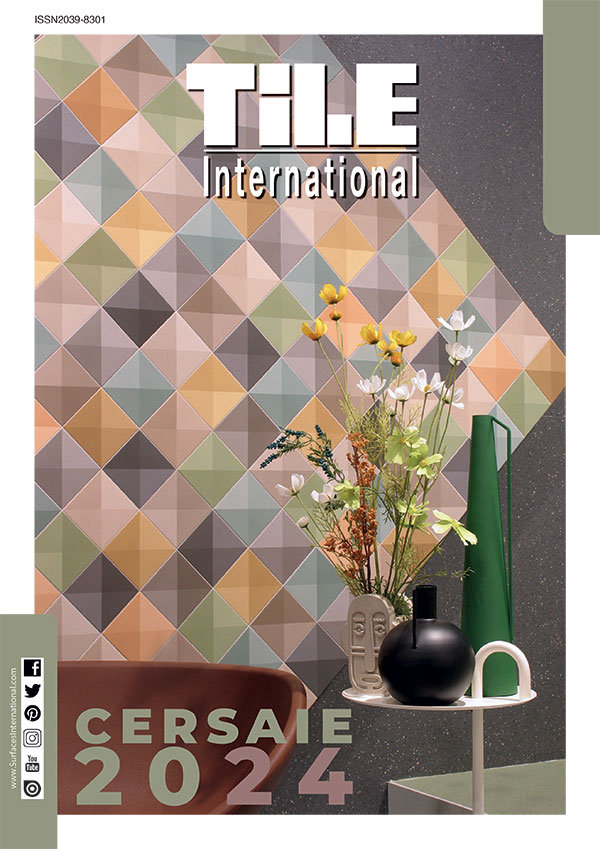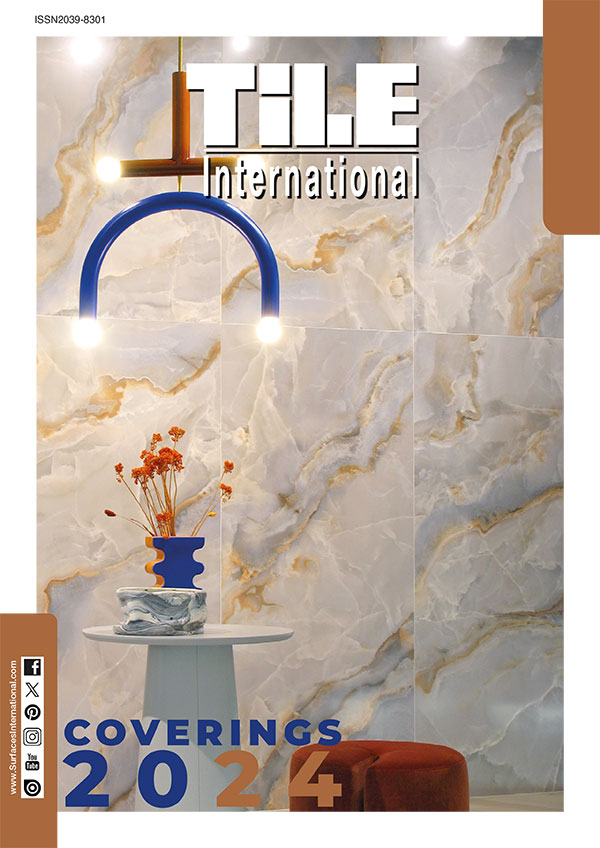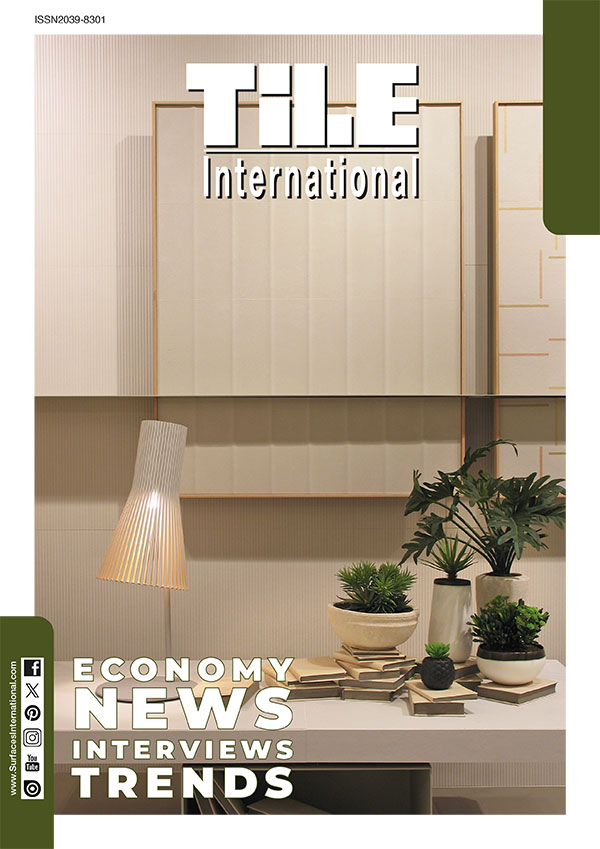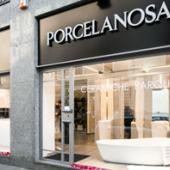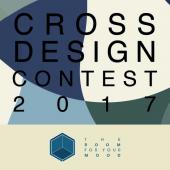Post-COVID office features automated desk sanitizing and shared digital platforms
International design and innovation practice CRA-Carlo Ratti Associati launches a collaboration with financial company Sella Group unveiling a concept design for the Group's Open Innovation Center in Turin, Italy. The experimental project focuses on pandemic-resilience and fostering creativity and new ideas. The pilot project proposes new ways to sanitize desks with UV-C light and manage clean air in a hot-desking environment.
Since early 2020, momentous changes have reshaped the way people work. The project is based on the premise that most companies are likely to keep promoting mixed remote-working arrangements – but that human interaction in the office is irreplaceable. Lower occupancy during the week requires switching to a hot-desking paradigm, while preserving safety for everyone during a pandemic. Space saved through hot-desking is in turn used to establish facilities dedicated to informal meetings and the exchange of ideas.
What is the role of the office in the post-pandemic future? Even if a dose of remote working is desirable, physical offices hold firm as a beacon for innovation,” says Carlo Ratti, founding partner of CRA and director of the MIT Senseable City Lab: “It is only in shared workplaces that we can establish those ‘weak ties’ among casual acquaintances that are crucial to producing new ideas and strengthening company culture. These ‘weak tie’ relationships are at risk when we work alone, since we tend to get in contact remotely with those people we always collaborate with. With the project for Sella’s Open Innovation Center, we strive to put forward a resilient design alternative for the future of our office, which will have to be safe and sociable.
The Open Innovation Center in the city center of Turin, Italy will host the Sella Lab dedicated to startups and fintech initiatives, among others. Central to the project is its core of shared activities and key connecting area. An ascending sequence of terraced pods serves as meeting areas around the main stairwell. Workstations are optimized in the framework of a hot-desking regime. The analysis of occupancy data helps with managing seat allocations, with the aim of fostering team member interactions. The same desk is used by different individuals at different times of the day and week – with sanitization between every user, using UV-C disinfecting lighting.
Furthermore, at a time when conventional heating, ventilation, and air conditioning (HVAC) systems are seen as facilitators in the spread of viruses and bacteria, the project experiments with new Heat Recovery Ventilation (HRV). A “smart window” handles air changes directly into each individual window. Reducing air changes between different spaces and providing a continuous circulation between indoor and outdoor that limits the diffusion of micro-organisms while improving the building’s energy efficiency.
This project belongs to a series of ongoing experiments on innovative workspaces led by CRA. Other projects include the 280-meter high CapitaSpring skyscraper in Singapore, jointly designed with Bjarke Ingels Group (BIG) for Capitaland, and currently under construction in the city’s Central Business District (CBD). In Italy, CRA has designed VITAE, a mixed-use development for Covivio that includes a system of offices connected to greenhouses and urban orchards that will bring a 200-meter-long vineyard into the heart of Milan, close to the Fondazione Prada cultural complex.

